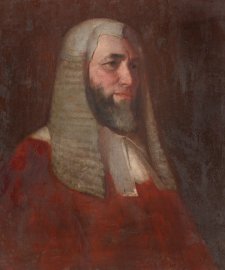It is not for a judge to enjoy what is generally known as popularity, nor is it indeed desirable that he should covet or aim at winning popular applause. All that he may hope for is, after years of toil laboriously spent in trying to do his duty, that he may win the confidence of the intelligent thinking portion of the community, those who are interested in maintaining law and order, those who desire to see the rights of property respected, and every citizen protected, as far as the right administration of justice can protect him, in the enjoyment of his personal liberty, in his character and in the exercise of his rights. And when the public has thoroughly come to understand that his only desire is to see the right succeed and the truth established, juries may feel confident that they may safely accept such advice and assistance in their deliberations as it comes within the province of a judge to offer. Of popularity beyond this he can know nothing
The duties he has to discharge are often disagreeable, and sometimes painful. Indeed, one of the drawbacks attending the judicial position was that it very much cut one off from social intercourse with one’s fellow citizens in a small society like this, where everyone was known, and where so many who might be known as acquaintances, were frequently before the Court, as parties to proceedings before it. So, one must be careful to avoid all appearance of evil occasion for scandal.













